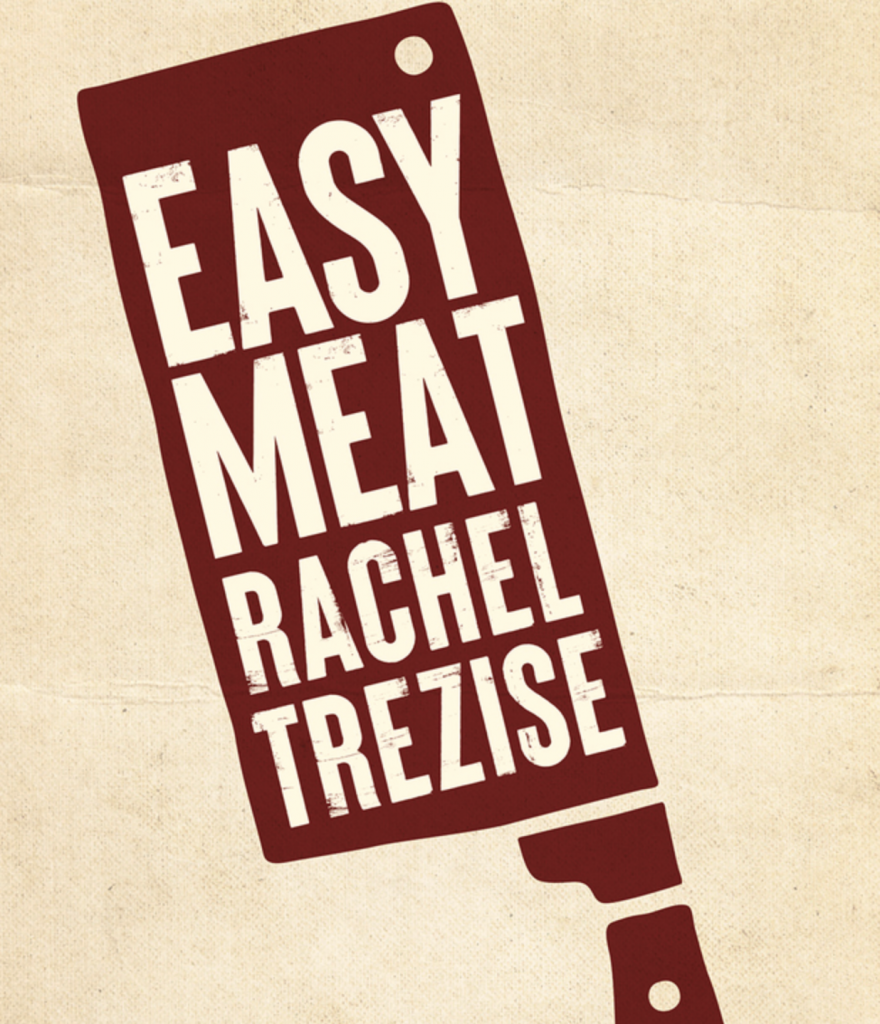Polly Winn reviews Rachel Trezise’s ‘Easy Meat’ (Parthian), a day in the life of a typical Valleys boy on 23 June 2016 – when the UK voted to leave the EU.
‘Remain’ meant that everything would stay the same but ‘Leave’ meant something had to change. So what if everything went tits-up for a few months? No pain, no gain. No pressure, no diamonds. It was as if the world had frozen like an overloaded IT system, so many pages simultaneously open that nobody really knew what was going on… someone needed to knock it all off and back on again.
Easy Meat is a poignant and vivid depiction of life in the South Wales Valleys for Caleb, a typical Valleys boy whose life is spiralling out of control.
An important addition to the growing genre of Brexit novels, it does not seek to hypothesise circumstances surrounding the EU referendum; instead, Easy Meat provides a valuable and moving snapshot in time from an area so often commented upon amidst the debate yet too often with an absence of local voices.
Trezise aptly evokes the sense of 2016 in every detail, from Caleb and his brother Mason’s ‘celebrity death pool’, to the Euros, the music and more.
We follow Caleb through Thursday 23 June 2016. He wakes pre-5am on his cronkey sofa bed to the stench of his brother’s spliff, drives to work at the blood-soaked slaughterhouse where he struggles to appease his bad-breathed boss, then back home to drag his exhausted body for a training run around the streets of Rhosybol.
“‘Do you think I won’t sack you like that?’, his manager threatens. ‘I’ve got the agency on the phone begging me for an opening every five minutes.’”
While Caleb navigates a series of misfortunes throughout his day, he remains largely oblivious to the fact that the tectonic plates of the UK’s political landscape are shifting.
The slaughterhouse provides the extended metaphor for the novel. It is a melting pot of immigrants from Poland, Portugal, Latvia as well as working-class blokes from the local valleys, a physical example of everything the referendum came to represent and threatened to change.
Caleb is an important central character in this sense, as class, nationality and identity are explored in a thoughtful and transitory way. He works quietly alongside his migrant colleagues with unspoken solidarity.
In many ways he’s jealous of the connections they have as they occupy themselves throughout the day with jokes that Caleb’s not in on, in languages he can’t understand: ‘He felt a twinge of jealousy at this. They had something he didn’t, they had each other.’
At the same time, he witnesses the way migrants are treated and perceived as he’s pulled in different directions by the locals at the plant.
The political tension is tangible – his slimy boss encourages him to vote Remain; ‘no migrants, no meat industry’ he says, while also complaining about strikes and unions.
Innovative. Informed. Independent.
Your support can help us make Wales better.
Another bloke from the nearby valley is voting Leave, grumbling about migrants, as he lauds the sacrifice and work ethic of his grandfather who arrived from Ireland into Newport docks.
The irony on both sides is not lost on Caleb, but ultimately he’s just keeping his head down, constantly confronted by his own disposability: ‘Do you think I won’t sack you like that?’, his manager threatens. ‘I’ve got the agency on the phone begging me for an opening every five minutes.’
Trezise is known for her stark language, which makes descriptions of the slaughterhouse quite difficult to stomach at times: ‘He kept his nostrils closed, postponing the advent of the putrid stench of death. But the moment he passed through the metal grille he could taste as well as smell the slaughterhouse, raw and elemental, buoyed at the back of his throat like a hot bubble of blood.’
But she can seamlessly shift to calm, imposing and vivid descriptions of the South Wales Valleys: ‘The sun was picking up strength, the landscape coming to life the way a polaroid develops: ferns and clusters of heather, yellow grass peppered with clods of brown reeds.’
Her prose really comes to life here, painting such a clear picture of the setting you can’t help but feel the sense of belonging and hiraeth Wales is known for.
“Easy Meat is a sensitive portrayal of people as people – full, complex and multifaceted.”
Easy Meat is simultaneously a romantic and confrontingly cynical portrayal of life in the Valleys, the figure of speech itself seemingly representing how people of the Valleys have too often been exploited, taken advantage of and perhaps overlooked by mainstream culture.
But the most impressive thing about the novel is the way that it delicately and sympathetically highlights how the referendum came to represent so much more than a binary political choice.
Instead, the Brexit vote holds a mirror up to society, playing upon themes that are central to who we are and the choices we make. Hope, aspiration, community, solidarity, combined with nostalgia, fear, isolation and hopelessness.
The strength of Caleb’s character is that he could represent anyone worn down by their daily struggle. We never do discover which box saw Caleb’s cross at the polling station. We can make our own guess, but it doesn’t really matter. We can reflect instead on how loaded the vote became.
At just 125 pages, you could easily gulp this immersive novel down in a few sittings, but Trezise covers considerable ground, subtly brushing across a whole range of themes that are arguably even more pertinent now than they were in 2016.
Ultimately, Easy Meat is a sensitive portrayal of people as people – full, complex and multifaceted – whose every choice is shaped by the conflicting experiences and identities that inform who we are.
All articles published on the welsh agenda are subject to IWA’s disclaimer.




